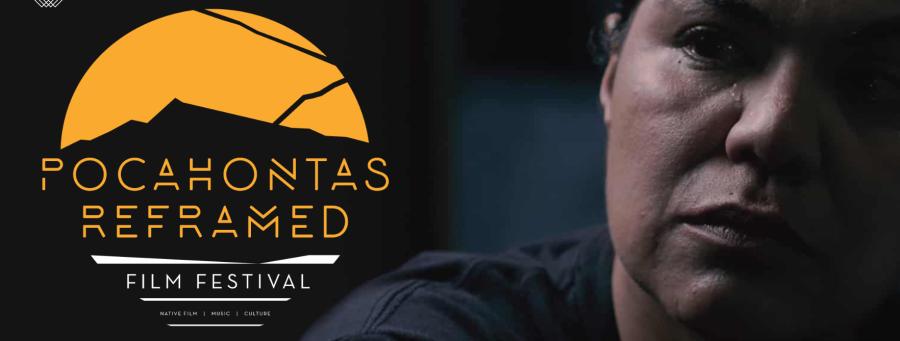NPR: At the beginning of this century, America was called God's crucible, the great melting pot. As we approach the end of the century, "melting pot" has been replaced by the buzzword "multicultural", which by some definitions separates us according to race, gender, and ethnic origin.
Noted historian Arthur Schlesinger acknowledges that indeed we are a country of many cultures, but he's concerned that we're losing sight of ourselves as Americans and that recent efforts to adjust our educational system to account for different races and ethnic groups could promote prejudice and racism. His reflections on our multicultural society are contained in this <1991> book, "The Disuniting of America."
ARTHUR SCHLESINGER: It's not a prophesy - the title, but I would say it's a warning, and I would against milticultural separatism. It's not a problem unique to the United States. It's evident that the 20th century a century of the warfare of ideologies: democracy vs. fascism, democracy vs. communism. But the end of the Cold War has released long-buried national, racial, ethnic, and linguistic antagonisms around the world. And the 21st century promises to be a century of the warfare of ethnicities - a mild form of it in the United States and in places like Yugoslavia, parts of the former Soviet Union, and the Middle East.
NRR: What is so dire about recognizing ourselves as a multicultural society?
SCHLESINGER: has always been a multicultural, multiethnic, and multiracial society. What does one mean by milticulturalism? If multiculturalism in education means teaching our kids about other continents, other cultures, other colors, other creeds, I'm all for that. If multiculturalism means teaching, say, the history of one's own country in terms which give due credit and recognition to the achievement of minorities, achievements that have been ignored, subordinated in history in the past, I'm all for that.
If multiculturalism means trying to see things from several viewpoints (i.e., the arrival of Columbia in the Americas), to see that from the viewpoint of , I'm all for that. But when multiculturalism means the exultation, celebration, promotion, perpetuation of separate ethnic and racial communities, this seems to me to raise problems, and at the end of that road lies Yugoslavia. Of all the attempts at multiethnic societies, the reason the United States is the only large multicultural society that has worked for a couple of centuries, more or less, is because we've had an overriding conception of an American nationality which transcends, absorbs, and is enriched and transformed by the subcultures that newcomers bring to this country. So any effort to artificially fortify and perpetuate these ethnic subcultures against the notion of an American nationality is problematic.
NPR: But when the United States created a new national identify, you say yourself that the curse of racism was a contradiction. It was a failure of the American experiment.
SCHLESINGER: America, alas, has been a racist society, racist in its institutions and in its laws and, alals, in the souls of Americans. We began as a country which thought white Americans had a God-given right to kill red people and enslave black people and import brown and yellow people for peon labor. A major theme of American history, however, has been the movement, still imperfect, from exclusion to inclusion. Racism is, essentially,a contradiction of American ideals, and we must live up to our ideals in this regard.
NPR: You take exception to the idea of history and literature being taught as therapies to raise so-called minority self-esteem. What's wrong with a little self-esteem - I mean, particularly if history has essentially ignored your story and your contribution?
SCHLESINGER: I doubt that do very much to improve self-esteem. I think self-esteem comes from personal achievement.
NPR: What about community pride then?
SCHLESINGER: doesn't come from glories of the past. I've never noticed that teaching Grrek-American kids about the glory that was Greece or teaching Italian-American kids about the grandeur that was Rome did much to improve their academic performance. I mean, that just isn't the way to go about self-esteem. Community pride? Community pride is something which a community pride is something which a community must generate itself. It's not the role of the public school..TX.-
NPR: Mm-hmm.
SCHLESINGER...to produce community pride. If community, the family, the church, the fraternal society can't generate community pride, it's not a task for the public school. There's inauthenticity, expecting public shcool to play the role o promoting and perpetuating ethnic and racial separatism.
NPR: Well, I understand that separatism obviously nourishes prejudices. But on the other hand, how do you think it's possible for people to identify with a nation that has essentially kept them apart in terms of, you, know, judicial system, economic system? How do you think that blacks or other so-called minorities that blacks or other so-called minorities are going to have a healthy, "melting pot" attitude towards America?
SCHLESINGER: Well, the theory of America, which, alas, our practice has fallen wretchedly short of - the theory of America is the one thing that excluded minorities have that will help them to gain fulfillment in their lives. Gunnar Myrdal, in An American Dilemma, Ralph Bunche, Kenneth Clark, and other historians, sociologists, and anthropologists made that point. And the American creed, as Myrdal called it, is the best thing minorities have. The best hope for minorities is precisely that America, white America, live up to the American creed.
NPR: Mmm. But if our history has been taught as the white man's history, isn't it possible that your argument could be used to maintain that status quo, to give no recognition at all to other contributions? How do we achieve that perfect balance between pluribus and unum?
SCHLESINGER: Well, clearly in the past, the contributions of various minorities, including that one minority which is numercially a majority - women...
NPR: Mmm.
SCHLESINGER:...have been underplayed in teaching American history. On the other hand, for better or worse, the great actors in American politics, for example, have been white males. To pretend otherwise is to falsify history. So you have to get a balance in that. But, you know, history changes all the time. Oscar Wilde once said, "The one duty we owe to history is to rewirte it." American history has been rewritten in my own lifetime as a consequences of two things. Once of them is the women's rights movement. The other is the civil rights movement.
Both of those have forced histories to take fresh look at the past and see things that were always there but hadn't previously interested So history is always going to be in a state of constant flux. But there's a deeper , and that is the assumption that Americans all see themselves as members of one or another ethnic group. The fact of matter is that most Americans are of mixed ethnic ancestry. very few see themselves indelibly and permanently as German-Americans, Spanish-Americans or even Asian-Americans, or black Americans. A telling statistics is the statistic of intermarriage. Today, only a quarter of American marriages take place between partners of the same ethnic group. Any theory of America based on the permanence and fixity of ethnic groups is bound to fail in the long run. And that is why these current efforts to make a big fetish of ethnicity seems to me mischievous.
NPR: It seems, though, that there is a difference between ethnicity and immigration. Slavery can be considered forced immigration, and Native Americans cannot quite be referred to as ethnics. Isn't there a separate issue here between those who were in this country as slaves and those who were in this country before the Europeans arrived?
SCHLESINGER: Oh, sure there is. And then there's a separate issue between those who are whites and those who are non-whites. And that second issue is a particularly troubling one. But even here, beneficial changes are taking place among youth. Asian-Americans, for example, now about 5 percent of the population, but they're 30 percent of the freshman class at the University of California at Berkeley this year. And I think that many of the old barriers are falling. The treatment of minorities has changed incredibly in my lifetime.
NPR: Mmm. It's easy to see how precious and tenuous the United States od America can be when you look at the violence in the former Soviet Union, you look at what's going on in Yugoslavia, and there's a part of us that - that want to say, "Well, why don't you just do what we do? I mean, we have our states and we have - you know, it's sort of all - epluribus unum as we say." But, you know, it 's not as easy as we think it might be.
SCHLESINGER: Countries can fall apart when ethnic rivalries, ethnic antagonism, ethnic hostilities become dominant. And also, it's easy for them to fall apart when there are linguistic differences. We have not had a common ethnic origin, but we've had a common ethnic origin, but we've had common language and common political ideals and institutions. And that has held us together, which means, in my view, that any effort to try to perpetuate and promote ethnic and racial separatism is a cause for alarm.
Article copyright Cultural Survival, Inc.



